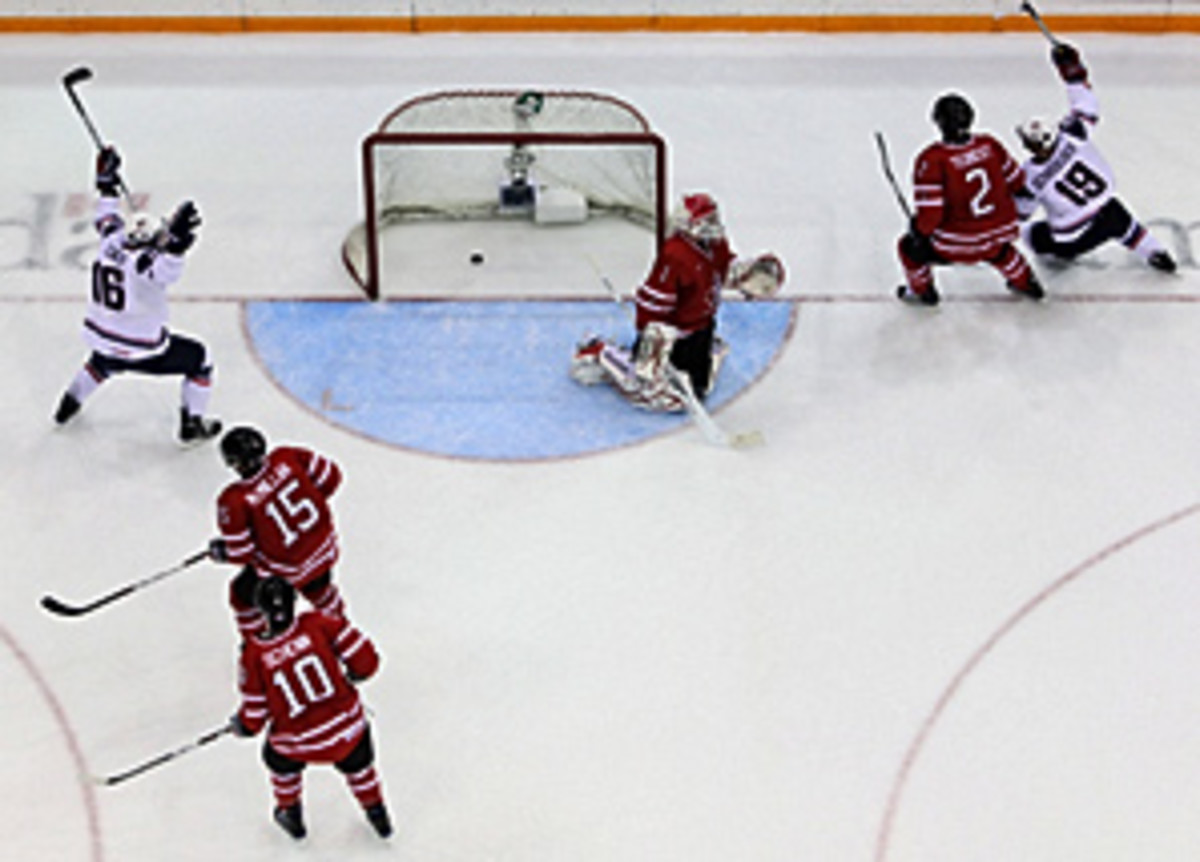Character is golden for Team USA in World Junior Championship
Played at full throttle with high emotion and mistakes galore, it wasn't always pretty, but it was plenty exciting. And by the time Washington Capitals prospect John Carlson scored the winner at 4:21 of OT to give the Americans just their second gold medal at the prestigious event, it also went down as one of the most important games in the history of USA Hockey.
"I've heard the word 'classic' so many times with these games, it was nice to finally be on the right side of the classic," said Team USA general manager Jim Johansson, who might have been the happiest man in Saskatoon outside of the guy holding the $149,000-winning 50/50 ticket. "It was a great game for both teams."
Certainly was great for the Americans, a younger and arguably less talented group than those that have represented the country over the past few years, but one that figured out how to play as a team. They also finally learned how to deal with adversity.
This was the same team, after all, that coughed up a two-goal lead to Canada on New Year's Eve on the way to a 5-4 shootout loss. So after allowing their rivals to erase three leads on Tuesday night, including a 5-3 margin that evaporated on a pair of Jordan Eberle goals in the final three minutes, it wouldn't have been a shock to see the Americans again crumble under the pressure, especially on Canadian ice, where the hockey gods always seem to smile on the home side.
Instead, they came out hard in the extra frame, getting a couple of quality chances on Martin Jones and some big stops from Jack Campbell before Carlson raced in on a three-on-one, looking off the entire time before releasing a nasty wrister from the circle that beat the Canadian goalie shortside. And just like that, the story changed from another blown lead to a gritty, well-deserved win for the unheralded Americans.
As big as that goal was, the game turned for the U.S. late in the second when coach Dean Blais decided he'd seen enough of starting goaltender Mike Lee. The Phoenix Coyotes prospect had played well in medal round wins over Finland and Sweden, but after allowing Taylor Hall's weak flip shot to get past him and tie the game at three, it was clear he wasn't up to this challenge. Campbell stepped in and was brilliant, stopping 32 of 34 shots in a performance that won't be forgotten come draft day.
If only Blais' counterpart had been so bold. A shaky Jake Allen gave Willie Desjardins every reason to pull his starter after Carlson's first of the night earned a 3-2 lead for the U.S. Instead, the Canadian coach left him in and Allen was victimized twice more, once by overcommitting on Jerry D'Amigo's bid early in the third and then by allowing an inexcusably fat rebound off a soft dump that was buried by Derek Stepan just 2:19 later. Desjardins finally had enough, but by that point Team Canada was in a hole that would doom them.
The Canadians, who saw their five-year hold on the crown end, expected a different fate, and maybe deserved one. After letting the Americans dictate the pace through the first 30 minutes, they dominated the second half. Other than Eberle though -- and has there ever been a more clutch goal-scorer in the history of this tournament? -- the Canadian forwards lacked the finish to bury the chances they created. It's easy to imagine a different result if so many of the country's age-eligible snipers weren't busy lighting it up in the NHL, but that's a problem with which Canada routinely has to deal.
Ultimately, though, it was more the failings of the back end that cost Canada. Allen, a St. Louis Blues prospect, never exuded the confidence of predecessors like Dustin Tokarski, Steve Mason or Justin Pogge. The blueline, error-prone and a step slow, couldn't adjust to the loss of Travis Hamonic, the top defender who was injured in the semifinal against the Swiss. Full marks to the Americans for exploiting those weaknesses with their speed, relentless forecheck and, most surprisingly, character.
That's the one element U.S. sides have lacked in the past. In the end, it was the margin of difference that earned them gold.





